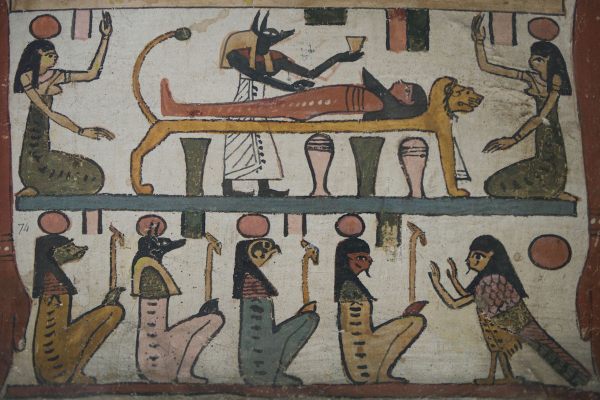The 3,800-Year-Old Mummy of a Middle Kingdom Noblewoman Has Been Found
Lady Sattjeni’s family were elites on Elephantine, an Egyptian isle on the Nile.
Egypt’s Ministry of Antiquities announced on Tuesday that they had discovered the 3,800-year-old remains of Lady Sattjeni, whose family ruled Elephantine, the tactically-important Egyptian isle near Aswan, in the country’s southern portion.
Sattjeni was discovered by a team of Spanish archaeologists at a necropolis known as Qubbet el-Hawa, on the western banks of the Nile across from Aswan.
Archaeologists have been trying to piece together the genealogy of Elephantine rulers, and officials said that the discovery of Sattjeni’s mummy would help. Sattjeni’s family ruled Elephantine sometime around 1800 B.C., and ranked just below the family of the ruling pharaoh.
Her mummy was found in “extremely good condition,” the antiquities ministry said, wrapped in linen and with parts of her cartonnage still visible on Sattjeni’s face. Her coffin was made of wood, which ministry officials would probably allow them to date it with some specificity.
As the former southernmost point of Egypt, Elephantine was important in defending the country from attacks but also a key point of trade. It’s also the site of an early Jewish settlement, and, to some, possibly a past home to the Ark of the Covenant.







Follow us on Twitter to get the latest on the world's hidden wonders.
Like us on Facebook to get the latest on the world's hidden wonders.
Follow us on Twitter Like us on Facebook